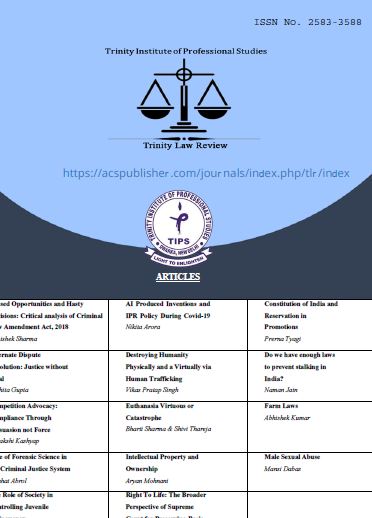Critical Examination of the Limits, scope and impacts of comparative analysis of Administrative Law
DOI:
https://doi.org/10.48165/tlr.2022.2.2.6Keywords:
limits, nature, scope, lawAbstract
In point of fact, it is not easy to arrive at a definition of administrative law that is scientific, specific, and adequate. Although a great number of jurists have made the effort, none of the have been successful in entirely delimiting the character and the scope of administrative law. Either the definitions are overly wide and include more than what is required, or they are too limited and have left out many crucial components. Both of these possibilities are problematic. Administrative law is an important subfield of law because it addresses the societal implications of applying legislative bodies in various contexts. It is possible to classify it as the result of having a comprehensive system of government. The structure of administrative law is undergoing modifications and adjustments as a result of the shift in the tasks that are performed by the government. These modifications are taking place in response to the conditions in which administrative law finds itself.




